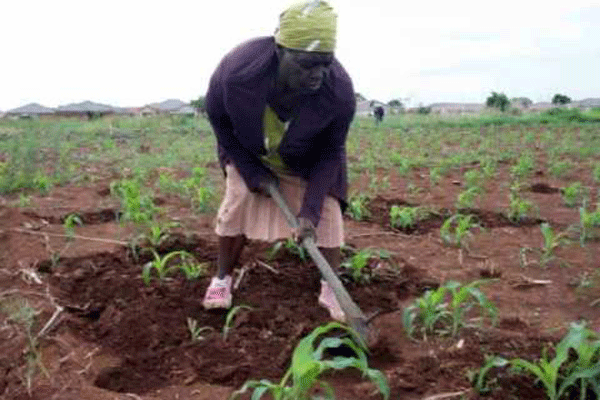
FARMERS are not adequately prepared for the 2018/19 agricultural season, amid indications that most of them are struggling to get necessary inputs such as fertiliser, Standardbusiness can reveal.
BY MTHANDAZO NYONI
The farming season, starts anytime from now, but indications on the ground show that farmers are still not prepared, a situation that will most likely affect output.
Commercial Farmers’ Union president Ben Purcell Gilpin said most farmers were struggling to get adequate inputs due to price instability.
“It’s difficult to say how prepared people are. The cost of everything is getting very high, the spares and things like that,” he said.
“Most people are demanding hard currency for that and not everybody is an exporter. There are a lot of issues in that regard and it’s really a challenge.”
Gilpin said farmers would have to weigh the risks of planting this season.
He said farmers should ask themselves whether they were going to get adequate returns for the crops that they would produce at the end of the season.
- Chamisa under fire over US$120K donation
- Mavhunga puts DeMbare into Chibuku quarterfinals
- Pension funds bet on Cabora Bassa oilfields
- Councils defy govt fire tender directive
Keep Reading
“So these are the issues that they need to weigh before they commit themselves,” Gilpin said.
“We also got concerns of El Nino coming. The El Nino doesn’t necessarily mean we will be having a drought, but it does increase the possibilities that there will be challenges mid-season with drought and things like that.”
Zimbabwe is facing another climate change-induced drought since the 2015-2016 season amid revelations by government recently that the 2018-19 rainfall season was pointing to an El Nino effect.
El Nino is the warming of ocean currents off the South American coast around December and causes below normal rain patterns and above normal temperatures in specific areas around the world.
The phenomenon, when it comes to southern Africa, often hits hard by bringing drought or flooding as it normally results in either too little rainfall leading to drought or too much of it, hence famine.
“So I think it’s a high-risk environment for people to be getting into the season and I think most will be reviewing the budget with the contractors and the contractors will be looking at things and saying ‘yes we can back you, we can’t back you’.
“Input supplies are problematic for many things across the board,” Gilpin said.
“So people are struggling with that.
“I think that just the mere difficulties of getting the necessary inputs, the difficulties on coping with the rising costs — it’s kind of making this a difficult season.”
Gilpin said chemicals were available but were being sold in hard currency.
“With farming you need to be on time with your production and the rains haven’t started yet, but we are looking to a delayed start for most farmers for this season,” he said.
“I think for the tobacco sector it’s better catered for because much of the inputs were secured long back and planting has started.
“So I think it will be more of an impact on the ready crop. There is great uncertainty, but I think that’s what farmers are used to.
“Usually they have to deal with hassles on the ground. At the moment, they haven’t dealt with finances and things like that which are more challenging than usual.”
Zimbabwe Commercial Farmers’ Union president Wonder Chabikwa said there was lot of instability on the market whereby prices of inputs kept going up on a daily basis.
“Right now, farmers don’t know how much they are going to pay for fertiliser,” he said.
“There is a supply disturbance, especially on the prices of fertilisers.
“Also horticulture seeds are being sold in US dollars and that is putting us in a tight position. It disturbs everything.
“Mentally, farmers are fully prepared for this season. They have budgeted for it, but implementation is being disturbed by distortions and instability in the market.”
Recently, Sable Chemicals marketing manager Philip Mathemera revealed that given the foreign currency shortages, the company would only be able to produce about 38% of the ammonia nitrate (AN) fertiliser required by the country.
While addressing the Confederation of Zimbabwe Industries annual congress held in Bulawayo recently, Zimbabwe Seed Trade Association president Denias Zaranyika assured farmers that they had enough seed stock for the 2018-19 farming season.
“So to be very specific, in the early maturity variety the total seed that we have, that is maize, we do have 50% of the total seed in the early maturing variety, which kind of suits the environment that we are talking about,” he said.
“Again in the medium maturity variety we have got 43% in that category.
“So if we add the 43% to 50%, you already have 93% which farmers can use comfortably even under those drought situations, depending on the severity of the season.”











